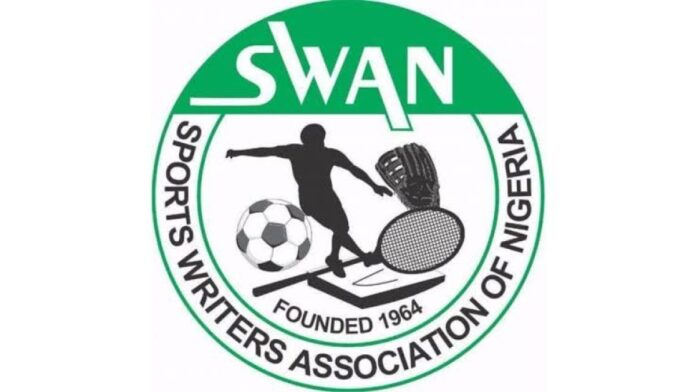The Sports Writers Association of Nigeria (SWAN) has called on the National Sports Commission (NSC) and other stakeholders to give overdue recognition, support, and reward to Nigerian sports journalists who have, for decades, contributed significantly to the growth of sports in the country—often at great personal cost.
In a statement released Tuesday by SWAN Secretary-General Ambassador Ikenna Okonkwo, on behalf of President Mr. Isaiah Benjamin, the association decried the neglect of sports journalists by key actors in the Nigerian sports ecosystem despite their vital and visible roles.
President Benjamin noted that unlike in other parts of the world, the media in Nigeria is often left to its fate—a situation he described as “appalling and unacceptable.”
Highlighting the indispensable role of sports journalists in the development of athletes, technical officials, and administrators, Benjamin said:
“Journalists pay their way to attend and cover competitions—local and international. They endure harsh weather, exorbitant transportation and accommodation costs, and many risks, yet administrators continue to treat them with disdain.”
Citing the just-concluded 2024 CAF Women’s Africa Cup of Nations (WAFCON) in Morocco, SWAN noted that over 25 Nigerian sports journalists attended the tournament through personal funding, without institutional or government support.
Beyond coverage, the journalists doubled as passionate supporters of the Super Falcons, boosting team morale and visibility.
“The experience of the average sports journalist in Nigeria is so pathetic that many of us go through a lot without any assistance or reward,” Benjamin said.
He reiterated:
“Despite playing a leading role in the development of sports month after month, year after year, journalists in Nigeria remain undervalued—even by those in high and strategic positions who should know better.”
Benjamin commended President Bola Ahmed Tinubu, state governors, and past Nigerian leaders for rewarding athletes and technical officials with cash, houses, and national honours. But he argued that the media—who amplify these successes—deserve equal acknowledgment.
“Yes, athletes and technical officials deserve celebration. But journalists, who’ve shown deep commitment to the growth of sport—and by extension, Nigeria’s economy—deserve even more.
“In other climes, governments, corporates, and sports bodies invest in media welfare. But here, even senior sports officials treat the media as an afterthought—which should not be.”
Benjamin further criticized a growing trend of media exclusion in sporting programs and questioned the priorities of some administrators.
“Why do sports administrators act as though journalists don’t matter—until they need us during personal crises?
“Why is there always a ‘lack of funds’ when it comes to including media in key events, yet budgets magically appear for their own comfort?”
He noted that in recent times, the NSC has repeatedly excluded SWAN from major national and international sporting engagements.
The SWAN President urged the NSC, the Nigeria Football Federation (NFF), and other bodies to prioritize inclusive planning—investing not just in infrastructure and athletes, but in integrating sports media as core stakeholders.

